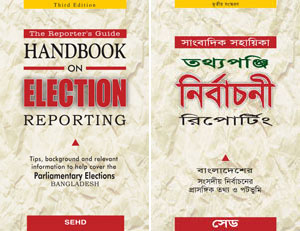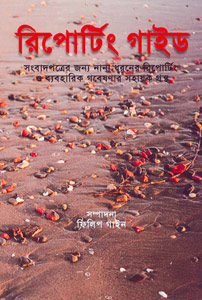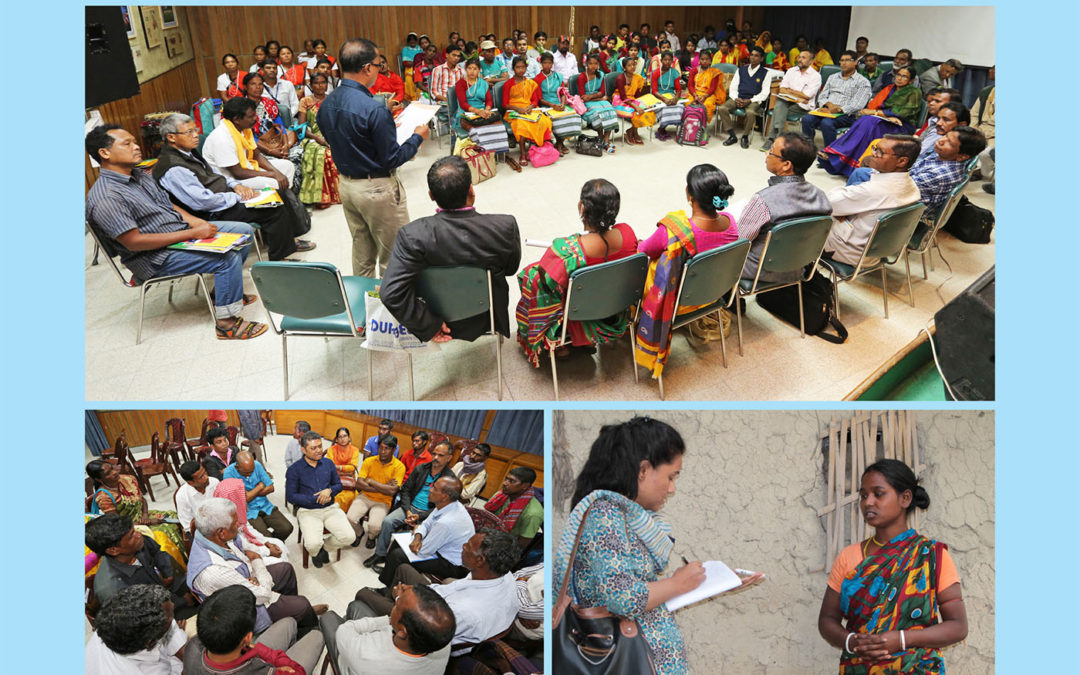
Prashikhkhan Upakaron O Sahayika For human rights defenders, journalists, develop actors, trade unionists and community leaders
Training Resource and Guide
Edited by Philip Gain
Published: Society for Environment and Human Development (SEHD)
Published 2019, Bangla, PBK, Pages 208, Price: BDT 250
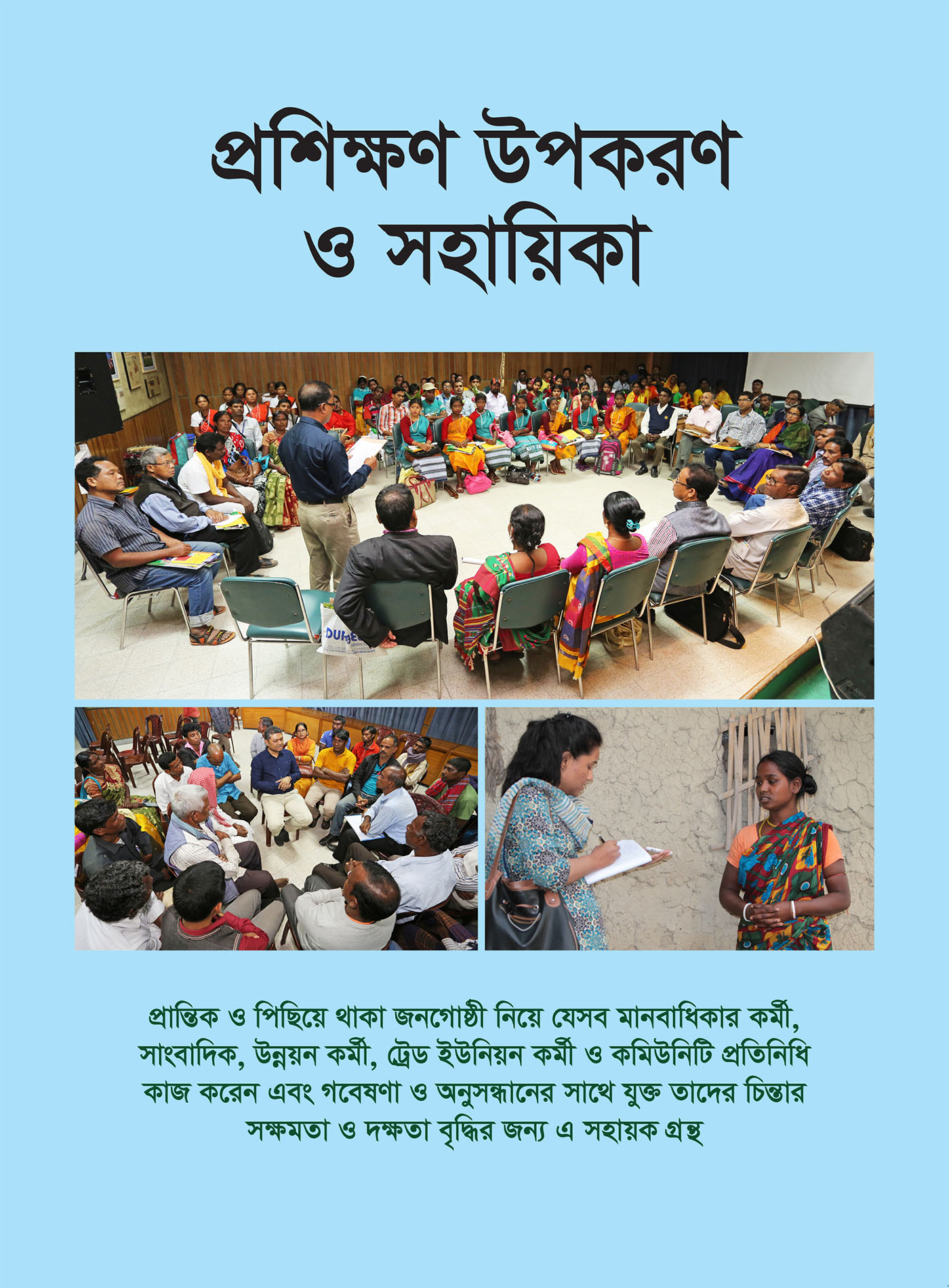 Prashikhkhan Upakaron O Sahayika is an essential guide for use of the human rights defenders, researchers, journalists, development workers, trade unionists and community leaders who work with marginalized and excluded communities. The guide, on one hand provides plenty of background information and on the other, assists in developing thinking ability on exclusion challenges and skills.
Prashikhkhan Upakaron O Sahayika is an essential guide for use of the human rights defenders, researchers, journalists, development workers, trade unionists and community leaders who work with marginalized and excluded communities. The guide, on one hand provides plenty of background information and on the other, assists in developing thinking ability on exclusion challenges and skills.
Chapter one of the guide provides background and primary information and analysis on marginalized and excluded communities that include Adivasis, tea workers and their communities, Harijans, Bede, Jaladas, sex workers and transgender, Kaiputra (pig rearing community), Rishi and Biharis in particular. Chapter two discusses skills necessary for investigation, FGD, communication and writing case studies.
Chapter three includes names, brief description and contact details of organizations—local, national and international) related to tea industry, tea workers and ethnic communities; annotated bibliography on selected books, report and documentary films on tea workers and smaller ethnic communities; the small ethnic communities cultural act 2010; Facilities provided to the tea workers by Bangladesh Labour Rules, 2015 and Bangladesh Labour Welfare Foundation Rules, 2010; Agreement between Bangladesh Tea Association and Bangladesh Cha Sramik Union (1 January 17 to 31 December 2018); glossary on tea, tea industry, tea gardens, tea workers and smaller ethnic communities; and international (ILO) instruments and law.

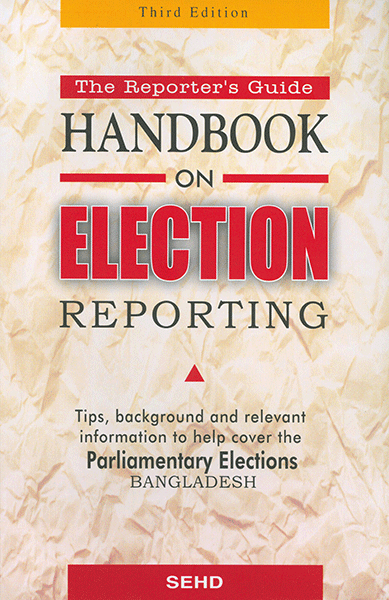
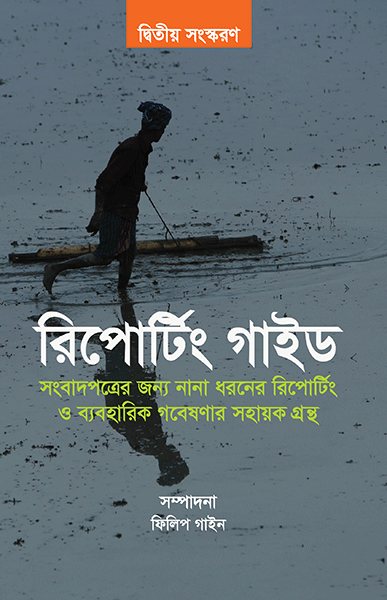
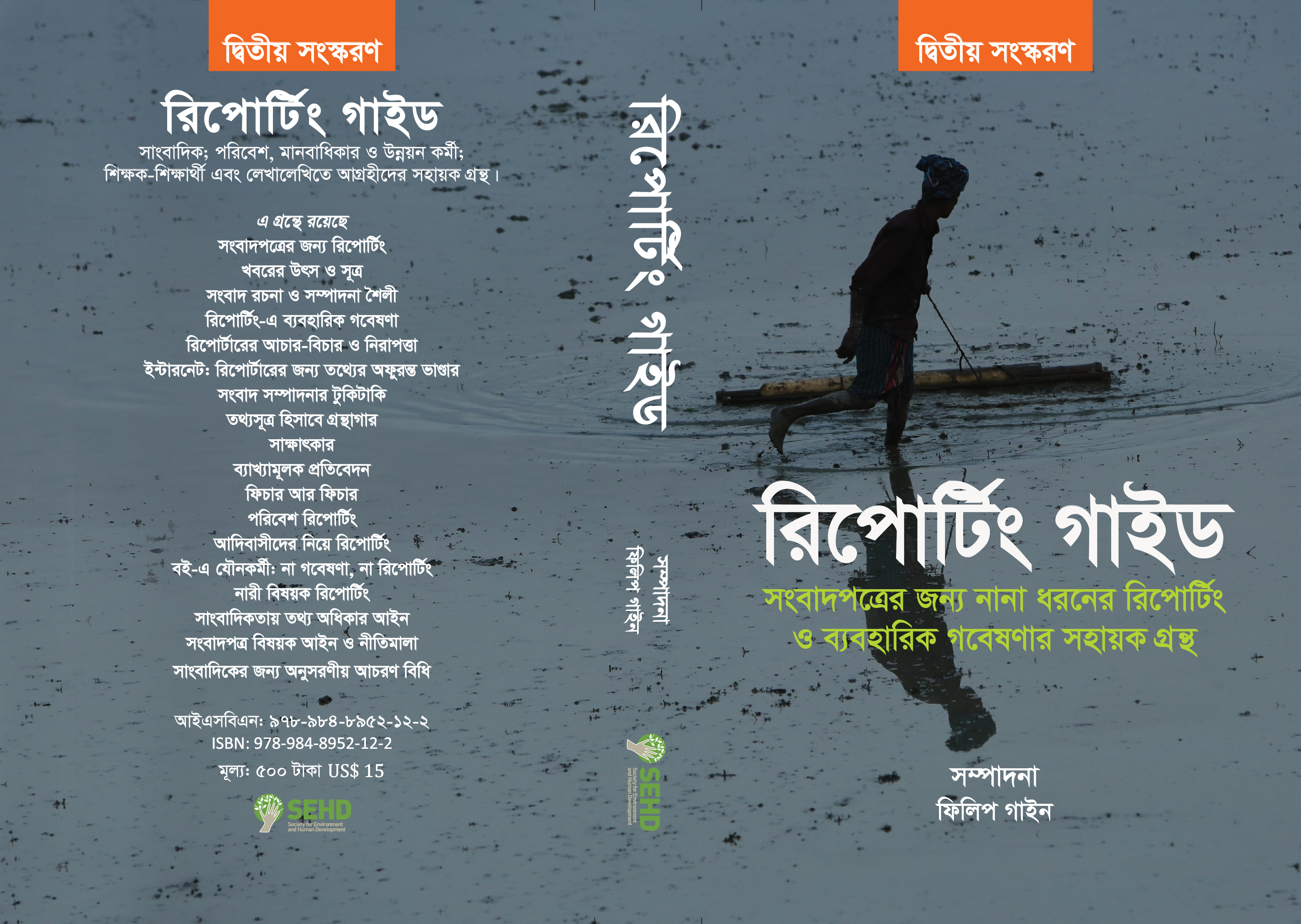 Powerful reporting is essential for newspapers and other news media. It requires a great deal of investigation, analysis, deep background, primary information and much more. The book, REPORTING GUIDE is all about powerful reporting. It is an essential guide for journalists, students, academics of journalism, environment and human rights activists and writers who care about excluded, deprived and marginal people.
Powerful reporting is essential for newspapers and other news media. It requires a great deal of investigation, analysis, deep background, primary information and much more. The book, REPORTING GUIDE is all about powerful reporting. It is an essential guide for journalists, students, academics of journalism, environment and human rights activists and writers who care about excluded, deprived and marginal people.